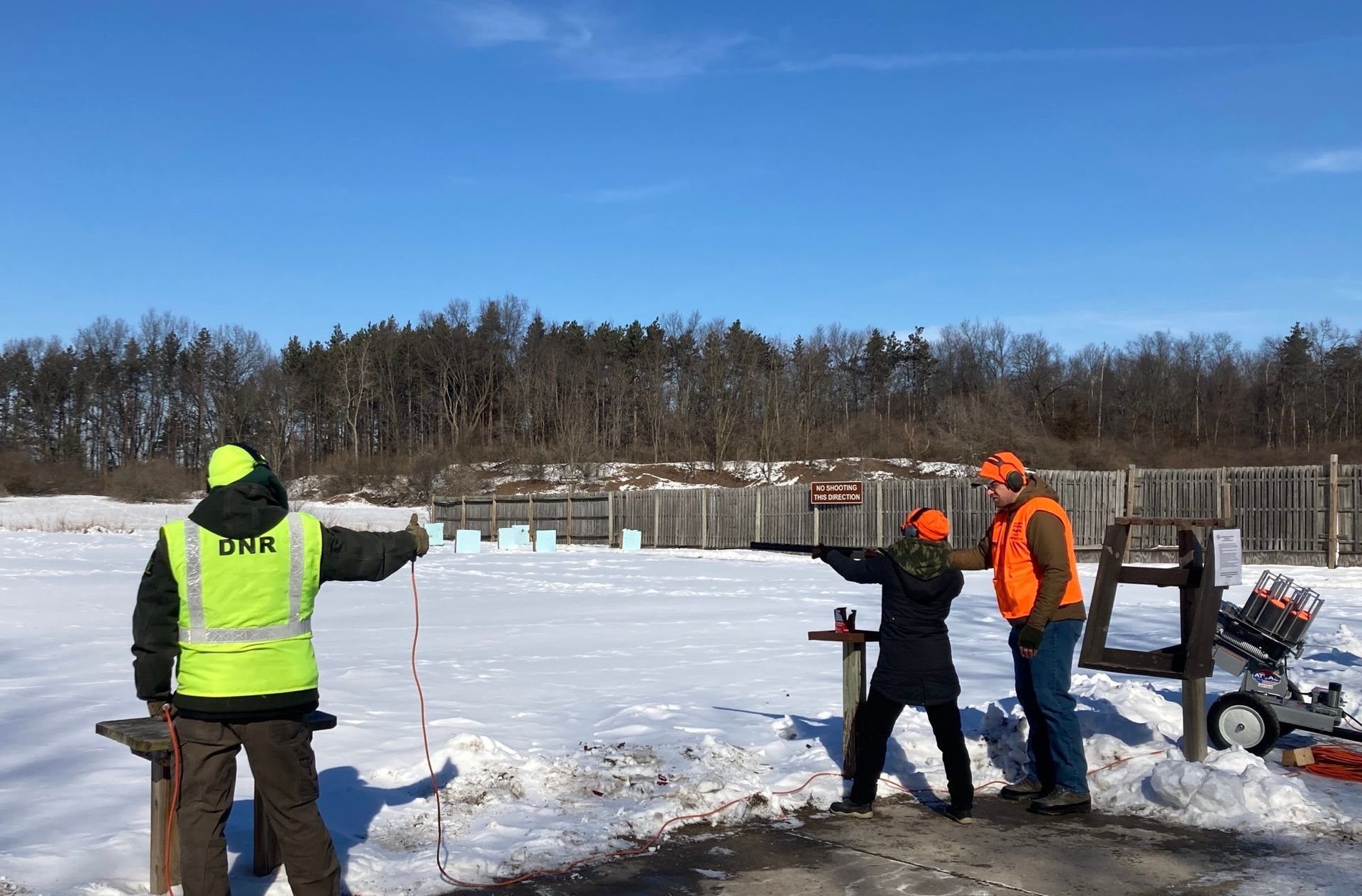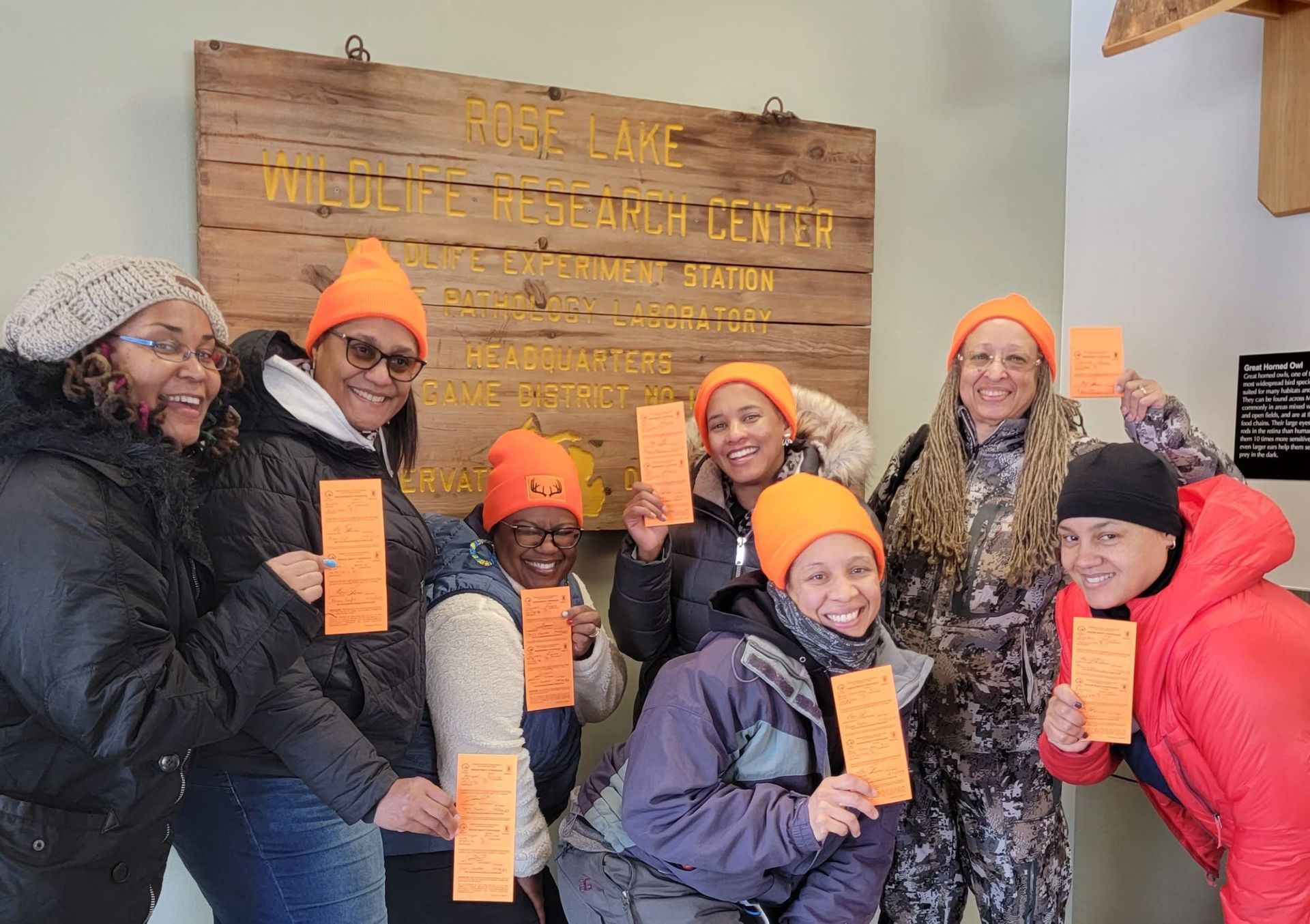On the Ground Partners with National Wildlife Federation’s Artemis Program to Host a Women’s Hunter Education and Habitat Day in Clinton County
Congratulations to our 14 newest hunter safety graduates!
On Saturday, February 4, 2023, On the Ground teamed up with National Wildlife Federation’s Artemis Sportswomen program with funding from The Abrams Foundation to host our first Women’s Hunter Education and Habitat Day at Rose Lake Shooting Range and Wildlife Area.

Participants learned how to shoot 20 gauge shotguns and .22 rifles during range time.
The purpose of this program was to provide a safe space for women of all ages and skill levels to learn new skills together and earn their hunter safety certificates, as well as to make a connection between conservation dollars from hunting license sales and on-the-ground habitat work on public lands.
Participants arrived at the Glassen Shooting Education Center at Rose Lake bright and early on the sunny but cold Saturday morning to settle-in before the instructors led them through a material review, covering everything from firearms and ammo to hunter safety and habitat management. Before attending this class, each participant completed the online homestudy portion of Michigan’s Hunter Safety course and the group came prepared with great questions to ask the instructors.
Following the material review, we were joined by Conservation Officer Lisa Taube of Livingston County and Conservation Officer Marc Mankowski of Eaton County, who led us through the Laws & Ethics portion of the class. They gave an engaging presentation about what it means to be an ethical hunter and the importance of hunting laws and regulations in regards to wildlife management and being a responsible user of public lands.
After all of the participant’s questions were answered, they completed the paper hunter safety exam and then headed out onto the shooting range. Students learned how to shoot .22 rifles with lead safety instructor and Artemis Sportswomen Ambassador, Jen Davis, as well as try their hand at shooting clays with 20 gauge shotguns led by safety instructors Zach Snyder and Bryan Czajka.

It was a pleasure to host this enthusiastic group of women from Black to the Land Coalition who joined us all the way from the greater Detroit area!
During the day, we had assistance from Rose Lake DNR Rage Officers who were a terrific help; we were very fortunate to have them share their expertise with our group and make sure that our range time ran smoothly.
After learning to shoot, we enjoyed lunch together as a group while DNR Wildlife Technician Chad Krumnauer gave us the run-down of our next activity, an On the Ground (OTG) habitat improvement project on public land near the shooting range. Chad explained that our project would be a continuation of past OTG projects at a local site that is being managed as a forest opening. Participants would learn how to preform “bark injection” treatments on invasive black locust trees that are encroaching on what should be a grassy open area. The overall goal of this ongoing project is to prevent black locust regeneration to maintain a canopy opening so native grasses and other vegetation that produce forage for game species can thrive.
Through this program, all 14 participants successfully earned their hunter safety certification while being active conservationists by improving wildlife habitat on public land. These ladies came into the day with a positive attitude and willingness to learn, and they left with smiles as they showed off their new blaze orange certification cards.
A huge thanks goes out to the wonderful safety instructors who volunteered their time to lead the class, the Conservation Officers who gave a fun and engaging presentation, and the DNR staff who welcomed us into their facility, helped us out on the range, and lead us in our habitat improvement project.
Recent Posts



